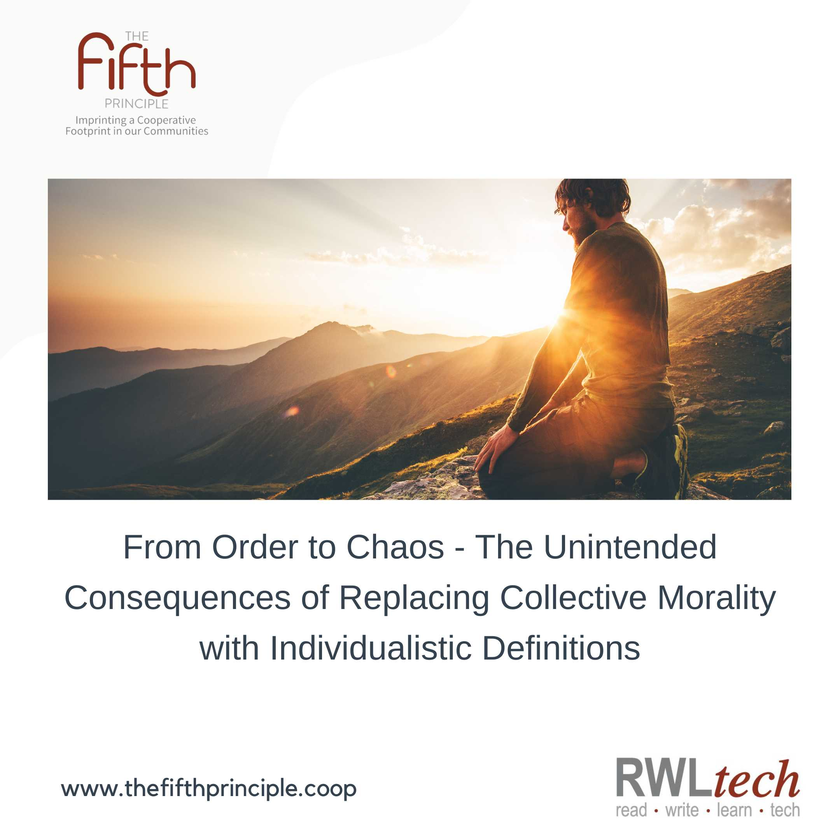As society increasingly shifts from adhering to Judeo-Christian values towards individualistic definitions of morality, we risk replacing harmony with fragmentation, agreement with discord, and stability with chaos. The prospect of evolving from order to chaos, contrary to the expected societal progression from disorder to order, presents an alarming possibility. While the intricacies of chaos theory may be a compelling subject in academic discourse, it is not a practicable blueprint for societal governance. Order, laws, and a consensus on moral and ethical standards form the backbone of effective governance—a shared legacy that has held us together as a community with a collective purpose for roughly two centuries.
Do you want to learn more about what you can do to act NOW! and save our Constitution?
https://www.thefifthprinciple.coop/wcid.html
Take your learning to the next level:
✍️ Join our course on faith here.
...


Join us for this great home school summit! https://greatdiscovery.ai/homeschool/416328/
I encourage YOU to employ what I call "Harmonic Leadership," which is a really evocative name. Let's explore the core philosophy behind that title and what it means to lead harmonically?
This is a concept I chose very intentionally. For too long, we’ve associated leadership with a single, loud voice—a soloist. But the most successful, innovative, and resilient teams don't operate like a solo act; they operate like a symphony or a great jazz ensemble.
Harmonic Leadership is built on a simple but profound idea: a leader's primary role is not to be the best player, but to create an environment where every musician (person) can play their best, together. It’s not about everyone hitting the same note—that's unison, not harmony. Harmony is when different, diverse notes combine to create a sound that's richer and more beautiful than any single note (person) could be on its own.
So, to lead harmonically means you are focused on tuning the team. You’re listening to the dynamics, blending ...













